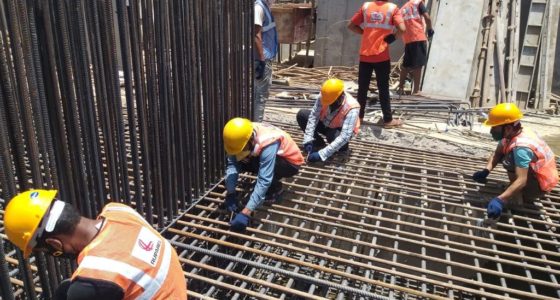India has made a historic leap in the Global Real Estate Transparency Index (GRETI) 2024, achieving a top 10 global ranking and entering the “Transparent” tier for the first time. This significant milestone highlights India’s advancements in financial regulation, climate risk disclosure, streamlined building regulations, and digitized land records.
Key Factors Driving India’s Leap
India’s ascent in the GRETI rankings is attributed to several key developments in the real estate sector. The country’s financial regulatory environment has strengthened, with the introduction of new climate risk disclosure guidelines that align with global standards. The implementation of streamlined building regulations and the digitization of land records have further contributed to this progress.
Institutional participation has played a pivotal role, with increased access to diverse real estate datasets and improved transparency in market fundamentals. The rise of Real Estate Investment Trusts (REITs) has enhanced market stability and provided standardized valuation processes. Regulatory improvements, including the Real Estate (Regulation and Development) Act (RERA) and the Insolvency and Bankruptcy Code, have bolstered investor protection.
Notable Improvements and Remaining Challenges
India’s performance in GRETI 2024 showcases its improved transparency in sustainability and performance measurement. The country’s transparency in transaction processes and market fundamentals has significantly enhanced, placing India among the top 10 globally. However, further efforts are needed to establish efficient dispute resolution mechanisms and democratize data access.
Samantak Das, Chief Economist and Head – Research & REIS, India, JLL, commented, “The push for transparency and increasing institutional participation have led to the adoption of best industry practices in India’s commercial real estate market. Notably, the growth of REITs and standardized market valuation processes have fostered a more transparent environment.”
Karan Singh Sodi, Senior Managing Director – Mumbai MMR & Gujarat, and Head – Alternatives, India, JLL, added, “India’s entry into the Transparent tier underscores the cohesive efforts of the industry and government. This achievement is expected to attract significant capital inflows and boost India’s standing among global investors. The high transparency ratings of markets are known to capture 80% of global capital flows.”
Future Outlook
India’s progress in real estate transparency is set against a backdrop of increasing global capital flows, with USD 4.8 billion recorded in H1 2024. As the country continues to enhance its regulatory and legal landscape, further improvements in transparency are anticipated. Focus areas for future growth include the adoption of detailed investment performance indices, enriched data coverage for alternative sectors, and a stronger commitment to sustainability and ESG (Environmental, Social, and Governance) goals.
In conclusion, India’s achievement in the GRETI 2024 underscores its growing prominence in the global real estate market. Continued efforts to advance transparency and regulatory practices will be crucial for maintaining and enhancing this position in the future.
Also Read: India’s Hospitality Sector Sees USD 93 Million in Investments in H1 2024
Global Real Estate Transparency Index (GRETI)
JLL and LaSalle’s GRETI, published every two years, is a benchmark for market transparency for property investors, developers, and corporate occupiers. The 2024 edition evaluates the legal and regulatory environment, enforcement mechanisms, and data availability across 89 countries and 151 cities, providing a comprehensive global comparison of operating conditions.









